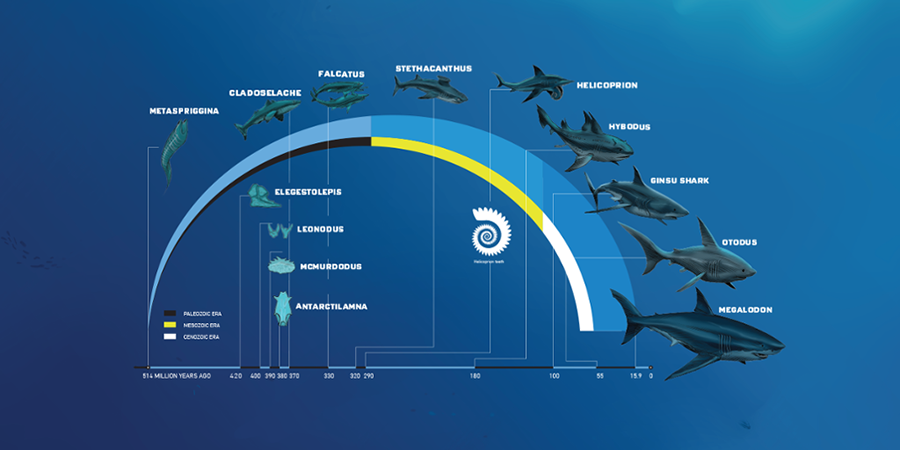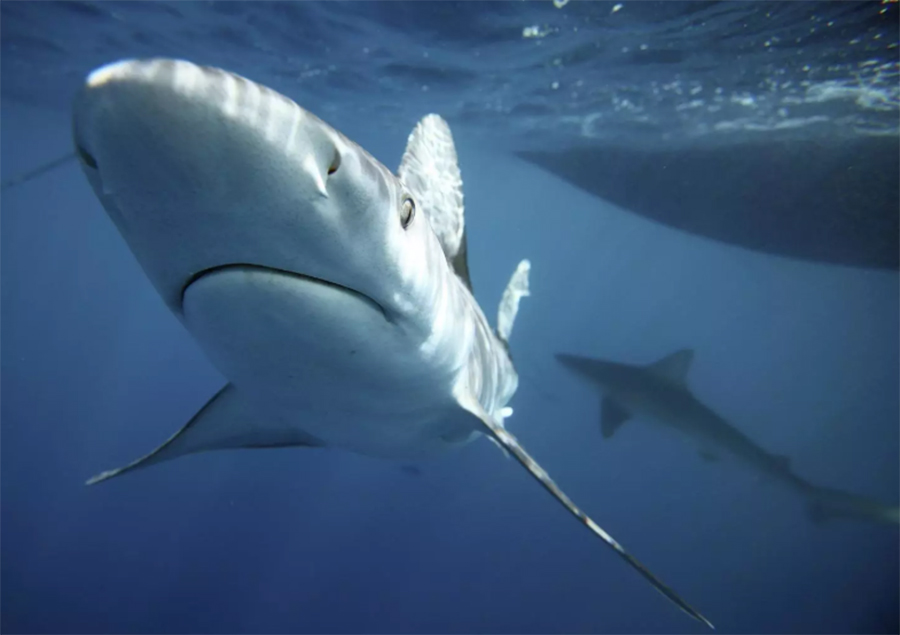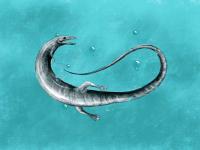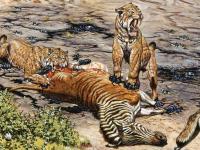Mass Dinosaur Extinction May Have Triggered Shark Evolution

Sharks began evolving differently after the extinction of many dinosaurs, possibly caused by an asteroid strike about 66 million years ago.
Scientists from Uppsala University in Sweden studied how sharks adapted when three-quarters of animal life on Earth suddenly disappeared in the Cretaceous-Palaeogene mass extinction. In a study published in Current Biology, the scientists said they had found that two groups of sharks went in different directions evolutionarily, a split which helps explain the sharks in the ocean today.
Before the extinction event, apex predator sharks called lamniformes dominated the oceans. Lamniformes include great white sharks, as well as their extinct giant cousin Megalodon.
After the mass extinction event mid-level predator sharks called carcharhiniformes instead became the predominant order of sharks, and remain so today.
Mid-level predator sharks are the largest order with over 270 species. The group, which includes sandbar sharks and hammerhead sharks, were found to have made a distinctive change that lamniformes did not.
Researchers examined nearly 600 fossilized shark teeth, analyzing their size and shape, primarily the height of the crown and breadth of the tooth. The teeth ranged from 56 million to 72 million years old.
Numbers of lamniformes with low-crowned and triangular teeth appeared to drop, but the carcharhiniformes with that same tooth shape thrived and rapidly increased in numbers. Today, there are only 15 species of lamniformes left.

The scientists believe that the evolutionary change is linked to the available food after the extinction event. Ancient lamniformes primarly preyed on marine reptiles, many of which which were wiped out. (Modern lamniformes have much more varied diets and will eat cephalopods or seals.)
Carcharhiniformes, which eat mostly small, bony fish, found that their food sources had proliferated after the extinction. And it may be that which laid the foundation for diversification of the group later. (Modern hammerhead sharks, for example, likely share the same diet as their ancient predecessors.)
Mohamad Bazzi, one of the researchers, told ScienceNews that the finding “is one of the more transformative events in shark evolution.”
Source: www.newsweek.com








